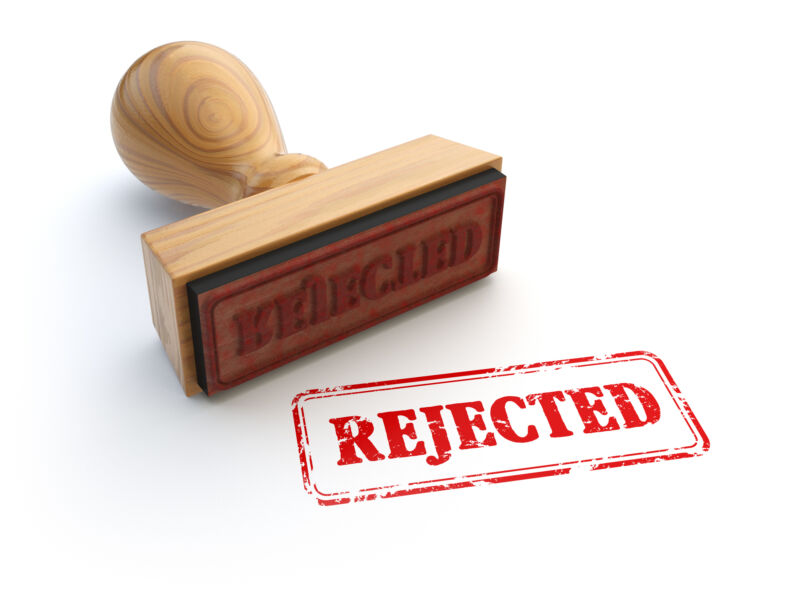

Dish and Viasat’s fight against Starlink satellite deployment fails in court
source link: https://arstechnica.com/tech-policy/2022/08/dish-and-viasats-fight-against-starlink-satellite-deployment-fails-in-court/
Go to the source link to view the article. You can view the picture content, updated content and better typesetting reading experience. If the link is broken, please click the button below to view the snapshot at that time.
Win for FCC—and SpaceX —
Dish and Viasat’s fight against Starlink satellite deployment fails in court
Dish interference claim rejected; Viasat environmental protest "too speculative."
Jon Brodkin - 8/29/2022, 5:57 PM

Dish Network and Viasat lost their attempt to block one of the key approvals Starlink received from the Federal Communications Commission. On Friday, the US Court of Appeals for the District of Columbia Circuit rejected the Viasat and Dish protests in a ruling that upheld the FCC decision.
Dish and Viasat sued the FCC after the commission's April 2021 decision to let SpaceX fly 2,824 of its Starlink satellites at a lower altitude than originally planned, in the 540-570 km range instead of 1,110-1,325 km. The FCC rejected protests from satellite competitors while agreeing with SpaceX that the altitude change would improve broadband speed and latency while making it easier to minimize orbital debris.
A panel of three DC Circuit judges heard the appeal and unanimously sided with the FCC and SpaceX, which was an intervenor in the case on the FCC's behalf. "Dish argued that the proposed changes would interfere with its GSO [geostationary orbit] satellite television service," the judges wrote. "Another competitor, Viasat, Inc., jointly objected with an environmental organization calling itself The Balance Group. They argued that NEPA [the National Environmental Policy Act] required the FCC to prepare an environmental assessment before granting the modification."
Dish claimed the FCC did not adequately consider the risk of signal interference, but the judges rejected that argument on the merits. Judges denied The Balance Group's appeal, saying the group lacked standing as it failed to adequately explain its operations or membership. They rejected Viasat's appeal because the company's theory for why it was injured by the FCC decision is "much too speculative" and "does not fall within the zone of interests protected by NEPA."
In summary, judges found that the FCC "adequately explained its conclusion that the modification of SpaceX's license would not interfere with Dish's satellites, and there is no proper party to pursue the NEPA claim." The same court in July 2021 rejected Viasat's motion for a preliminary injunction that would have halted Starlink satellite launches while litigation continued. The case was argued in December 2021, and the court's opinion was filed by Circuit Judge Gregory Katsas.
The losing parties could ask the DC Circuit appeals court to rehear the case in front of all the court's judges or file a petition with the Supreme Court. But either avenue would probably be a long shot.
AdvertisementWhy Dish lost
Dish's first argument is "that the FCC unreasonably refused to consider expert reports claiming that SpaceX's proposed changes would interfere with Dish's GSO satellites. But the reports use a different method for assessing interference than what binding regulations require," the ruling said.
Contrary to Dish's claims, the FCC considered the possibility of interference and found that the Starlink altitude change "will not increase interference to GSO satellite systems," the ruling said. The FCC "applied the correct legal standard in making that finding based on a certified compliance with ITU [International Telecommunication Union] power limits."
Judges said they also rejected Dish's argument that "the FCC unreasonably waived the requirement of a favorable ITU finding, thus allowing SpaceX to proceed based on software validation alone." The FCC had good cause to make that decision, the ruling said:
When the International Bureau first granted the waiver, it determined that an ITU backlog would significantly delay the start of operations even though SpaceX had already certified compliance with ITU power limits using ITU-approved software. We have held that "harm resulting from delay" can be good cause for a waiver. Here, the [FCC's International] Bureau reasonably granted a waiver to avoid long delays in the provision of Internet service to Americans who remain "totally unserved by other broadband solutions." And it reasonably concluded that the certification of compliance would provide some assurance of no harmful interference.
Recommend
About Joyk
Aggregate valuable and interesting links.
Joyk means Joy of geeK